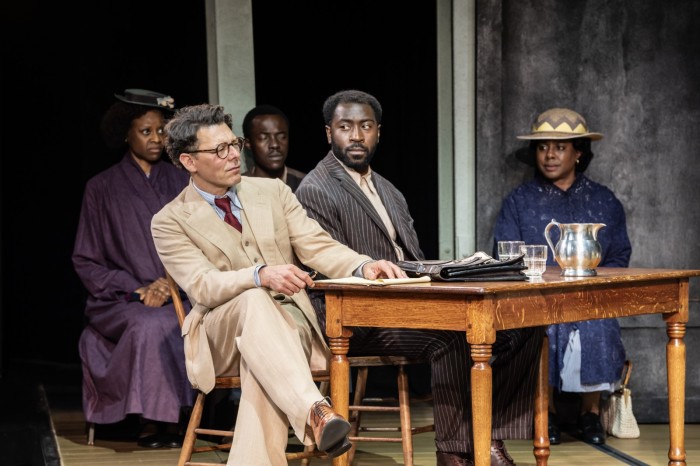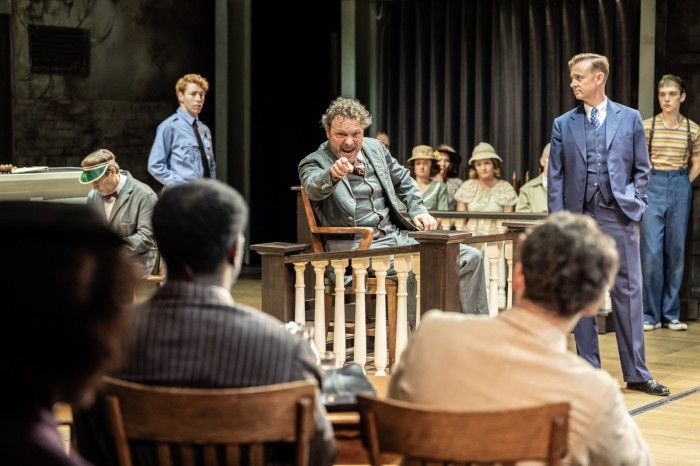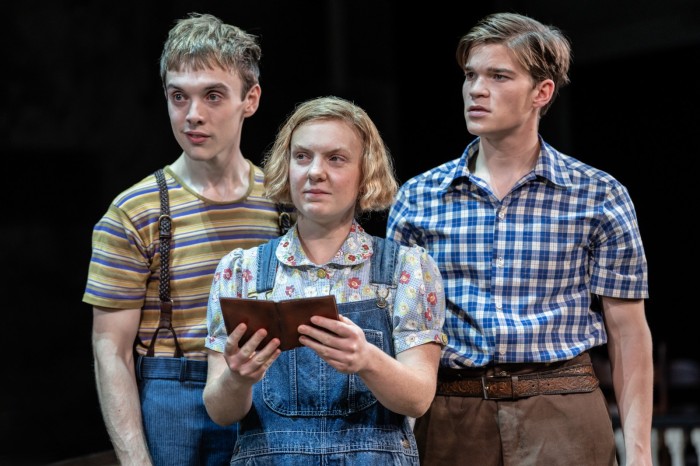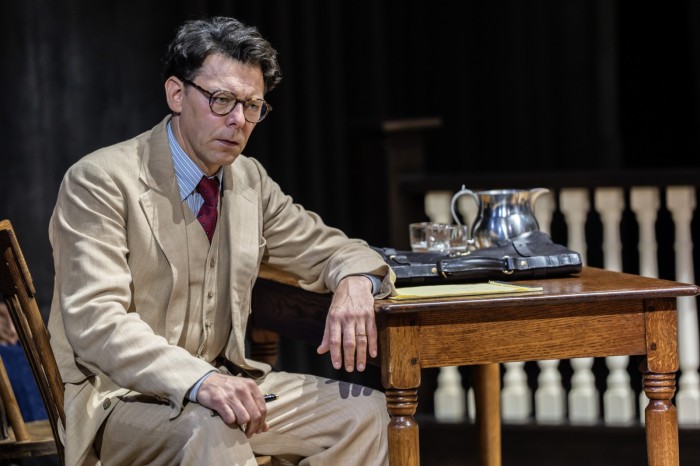Michael Cox reviews the tour of the new adaptation of a classic American story.
It is frightening how pertinent Harper Lee’s seminal novel To Kill a Mockingbird remains. Set in the American South in the 1930s and originally published in the 1960s, the story highlights themes of racism, bigotry and injustice—wounds that America has yet to fully address.
The story has always been about Scout Finch and her reflections on the summer she lost her youthful innocence. A life in a small, tightknit community and childhood adventures with older brother Jem and neighbourhood kid Dill are brought to a halt when her lawyer father Atticus is assigned the task to defend Tom Robinson, a black man accused of raping a poor white woman. Scout’s idealised life is shattered as she watches the community she loves turn on her father and reveal racist tendencies.

Mockingbird has been adapted before. The cinematic version is still regarded as a classic with some of the most influential and respected performances in a Hollywood film. It has previously been adapted for the theatre by playwright Christopher Sergel; his version has been widely performed throughout the US and UK for over 50 years. Both are extremely faithful to Lee’s novel—in character and in structure.
This new version, by acclaimed writer Aaron Sorkin, certainly takes an original approach. The basics and characters remain the same, but Sorkin’s version puts the trial of Tom Robbins front and centre, filling in a lot of the before action with the children through flashbacks.
This choice allows for Atticus Finch to become far more prevalent. Sorkin has added texture to this acclaimed and loved character—he’s still an idealist fighting the good fight, but as we don’t only view him through a child’s eye, he reveals himself to be flawed and more fully-fleshed.
Sorkin has also expanded many of the supporting characters. Bob Ewell is now a dangerous force throughout the full story, and his conversations, particularly with Atticus, are chilling. Perhaps the biggest change is in the crucial role of Calpurnia, or Cal as she’s called here. Serving as the maid and maternal figure for the Finch family, Sorkin has given her far more agency, and some of the play’s strongest moments are the battle of wits and morals between her and Atticus.

Sorkin still has Scout narrate, but Jem and Dill also contribute. This might mean that Scout’s reflections don’t have as much of a poetic flow as they do in the book or film, but it does mean the children are always on stage—witnessing injustice and being pulled quickly into maturity. Sorkin also gives the three moments where they question Atticus’ views in being kind to those with dangerous views. This choice makes the three more active in the story—and also furthers the development of Atticus. However, the ending doesn’t have the usual impact as it involves tying up loose ends with the children—plot points that aren’t given the weight here as they are in other versions.
As for the production, it’s three-hour running time flows quickly. Director Bartlett Sher keeps the pace active and has a terrific ensemble of actors. Anna Munden (Scout), Gabriel Scott (Jem) and Dylan Malyn (Dill) are all terrific as the kids—even if they don’t come close to looking child-like. They give the production great energy and a youthful sheen that makes the difficult plot points bearable. Oscar Pearce is effective as Bob Ewell, a hateful character that isn’t played as a snivelling two-dimensional baddie, while Evie Hargreaves’ Maayella Ewell is a complex antagonist—sympathetic yet maddening, sometimes at the same time. Aaron Shosanya gives a quiet dignity to the oppressed Tom Robinson, and Andrea Davy is wonderful as the crucial voice of reason Calpurnia.

But any performance of Mockingbird will be judged by its Atticus, and Richard Coyle more than impressively fills the boots that many have tried walking in. Coyle isn’t as quiet as many have played the role in the past—he has an intelligence about him, but he isn’t passive. In a world filled with big talkers and grandstanding blowhards, how wonderful it is to see a character portrayed with dignity and heart.
To Kill a Mockingbird is an essential story, and this production more than serves the source material well. It is respectful without being overly conservative, and it uses language that effectively pulls this crucial story into the here and now. It’s brilliantly done—it’s just an utter shame that it keeps needing to be done. All rise!

To Kill a Mockingbird is at the Glasgow King’s Theatre until November 8, 2025. It then continues its UK tour. For further information, go to the production’s website.
Photos by Johan Persson.